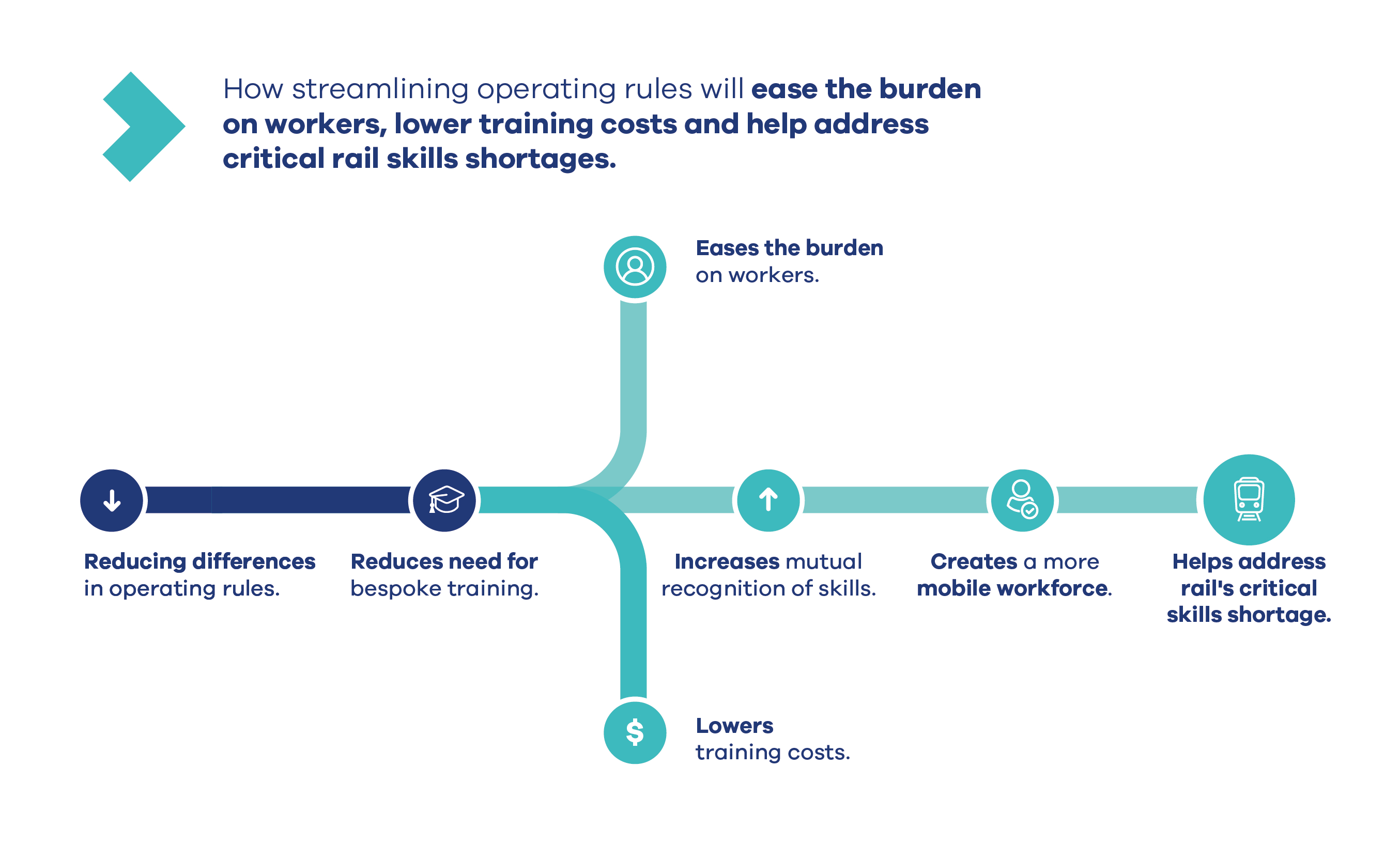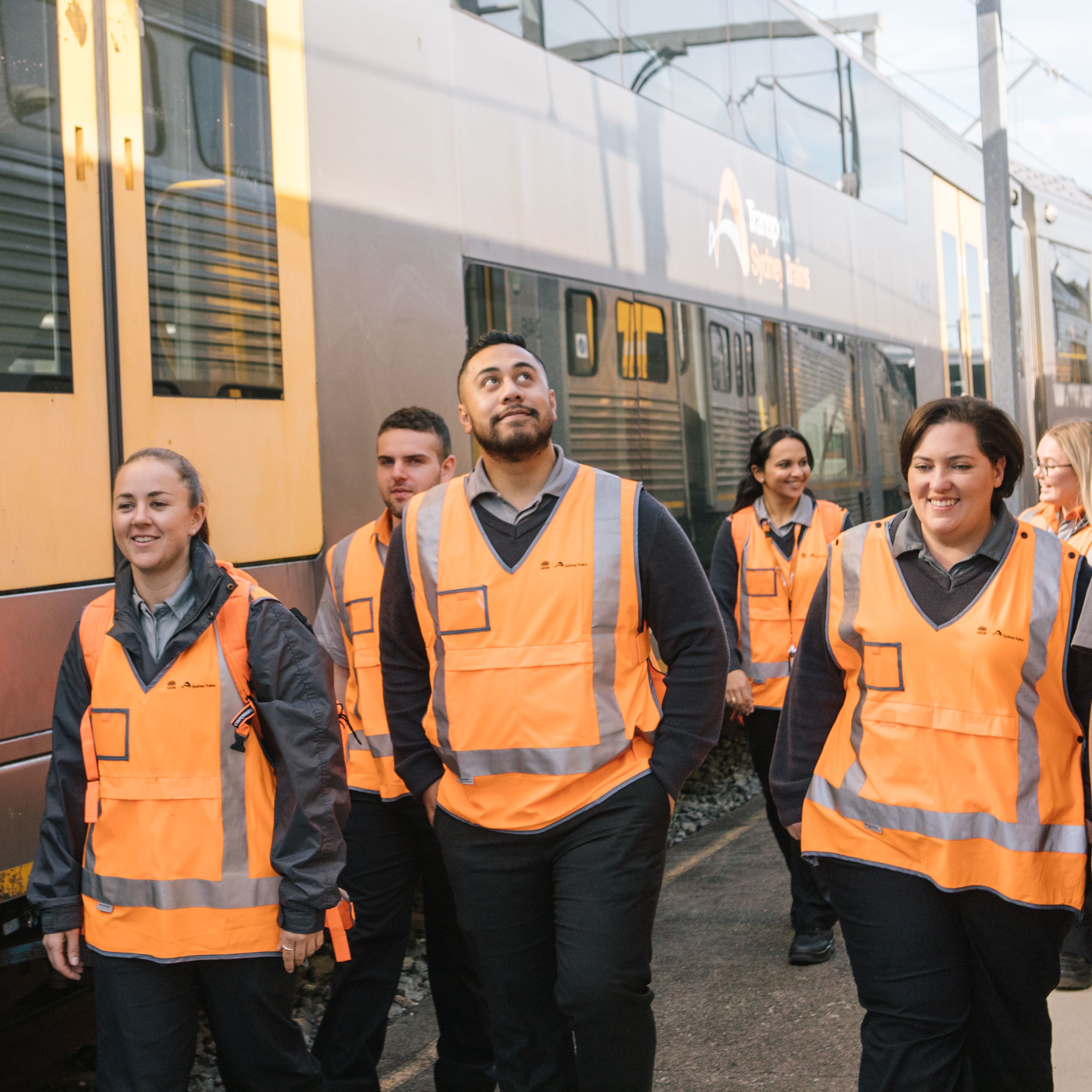Streamlining rail skills and training
Australia’s 18 separate rail networks have varying operating rules, systems and technologies. This has led to them developing their own unique training and assessment procedures.
Training is not mutually recognised. So, workers must be retrained and assessed to work on different networks.
This places a burden on rail workers who build, operate and maintain our networks, and increases the risk of human error. It is also a challenge for operators and network managers as they are constantly required to retrain and maintain the competencies of workers entering their networks.
Through the National Rail Action Plan (NRAP), the NTC is working with governments, the rail industry, skills sector and unions to reduce the need for bespoke training by streamlining operating rules and processes.
This will:
- reduce the burden on workers
- improve safety
- drive down costs and time lost to training
- make it simpler and easier for workers to move across networks, improving workforce portability and expanding our national rail skills base.
Identifying common operating rules
Today workers need to be knowledgeable in up to 12 different rule books, and to maintain competencies across every network on which they operate.
While competencies may share many elements in common, they are not mutually recognised. This leads to workers being retrained and assessed in skills they may already possess as they move between jobs and jurisdictions.
NRAP is bringing together the NTC, the Australasian Railway Association (ARA), the Rail Industry Safety and Standards Board (RISSB) and industry to develop a set of common operating rules and practices that will help reduce the need for bespoke training.
A line-by-line comparison of nine current rule books has identified rules with the most commonalities.
These will be prioritised for standardisation.
To help this work, we have identified rail’s top 10 operations and maintenance roles across Australia’s 18 rail networks. And grouped together their most frequently used titles. You can find a copy of the report here.
Comparing the many different roles, responsibilities and rules that exist across rail networks is a huge and complex task. We are examining ways that artificial intelligence tools can be used to hasten the process.
An understanding of these similarities and differences will make it easier to identify the skills that workers need to be trained in as they move between jobs and across organisations.
Harmonising training and onboarding
We’re also working with industry, the education sector and Industry Skills Australia (ISA) to develop entry level training that is recognised by all networks.
This will:
- reduce training costs
- make it easier for workers to move across network
- help skilled workers from different backgrounds find a job in rail.
As a first step, the NTC collaborated with industry through NRAP to create a National Blueprint for Mutual Recognition of entry level skills and training. The Blueprint is being implemented in two phases.
Right now, the ISA is developing:
- mutual recognition principles
- a code of practice
- guidance for competency assessment and the delivery of entry level rail skills.
Mandating qualifications for nationally recognised training
A recent review of Australia’s Rail Safety National Law (RSNL) found that consistency of rail skills and training is critical to improving safety and interoperability across our rail system.
Previous attempts by industry to harmonise operating rules have been voluntary and had limited success.
The review recommends changes be made to the law to establish a national set of rules and competencies.
This includes:
- mandating and awarding of qualifications and units of competency for nationally recognised training
- mandating a national competency management system to support mutual recognition.
How to participate
If you'd like to express interest in the National Rail Action Plan and program, or ask us a question about our work, send us an email as we'd like to hear from you.

